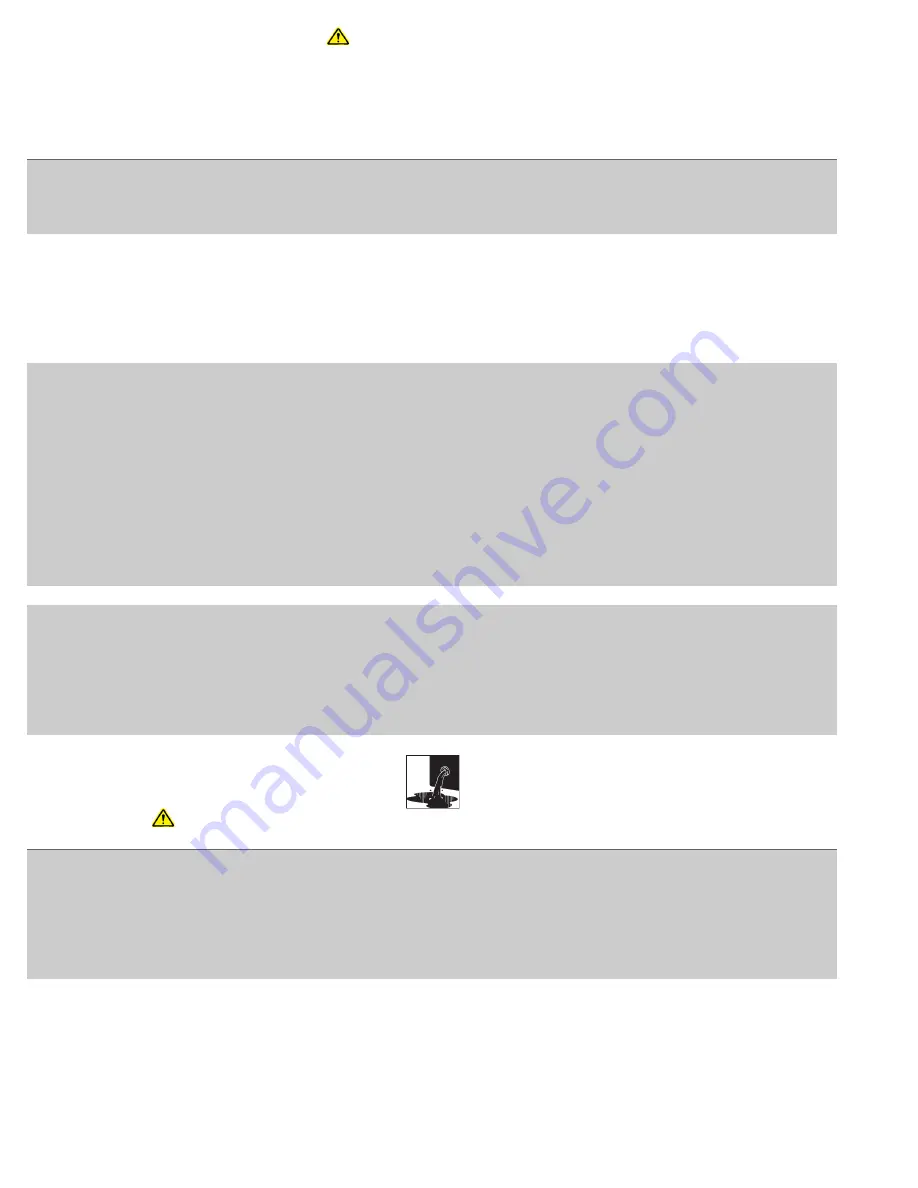
4
WARNING: RISK OF BURSTING
AIR TANK: Air tanks do not have an infinite life and should be inspected once every year to ensure they are still safe for use. To find
your state pressure vessels inspector, look under the Division of Labor and Industries in the government section of a phone book
or call us toll-free at 1-800-310-3573 for assistance.
The following conditions could lead to a weakening of the air tank, and result in a violent air tank explosion:
WHAT CAN HAPPEN
HOW TO AVOID IT
•
Failure to properly and regularly drain condensed
water from the air tanks will lead to rust and thinning
of the steel air tank can lead to a violent air tank
explosion.
•
Drain tanks daily or after every 4 hours of use. If a tank
develops a leak, replace it immediately with a new air
tank, or new complete compressor.
•
Modifications, alterations, or attempted repairs made
to the air tank can lead to a violent air tank explosion.
•
Never drill into, dent, weld, patch, or modify the air
tank, or its attachments in any way. If you are in
possession of a tank in which it appears any of those
conditions exist or were attempted, discontinue use
and replace air tank immediately.
•
Never attempt to repair a damaged or leaking air tank.
Replace with a new tank immediately.
•
Unauthorized modifications to the safety valve,
pressure switch, pilot unloader valve, or any other
component which controls air tank pressure can lead
to a violent air tank explosion.
•
The air compressor is designed to safely operate and
withstand specific factory set pressure. Never make
adjustments or parts substitutions to components that
control air tank pressure or factory set operating
pressures.
•
Do not make alterations to the factory operating
pressure settings.
•
Before starting, and with air tank pressure at zero, pull
the ring on the safety valve to make sure it moves
freely.
•
Never operate without a factory approved safety
valve.
Attachments & Accessories:
•
Exceeding the pressure rating of air tools, spray guns,
accessories, tires, or any other inflatables can cause
them to explode or fly apart.
•
Do not use air tools or attachments before reading the
owner’s manual to determine the safe maximum
pressure rating.
•
Never exceed the manufacturer’s maximum allowable
pressure ratings.
•
Never use the compressor to inflate small low
pressure objects such as children’s toys, balls, etc.
DANGER: RISK OF INJURY OR PROPERTY DAMAGE WHEN TRANSPORTING OR STORING
WHAT CAN HAPPEN
HOW TO AVOID IT
•
Oil from the compressor can leak or spill and could
result in fire or breathing hazard; serious injury or
death can result. Oil leaks will damage carpets, paint,
or any other surfaces.
•
Always keep compressor level and never lay on its
side. When transporting, always place compressor on
a protective mat to prevent against damage from
leaks. Always remove compressor from vehicle
immediately upon arrival at your destination. If an oil
leak is found, follow all local safety codes for cleanup
of hazardous materials.






































